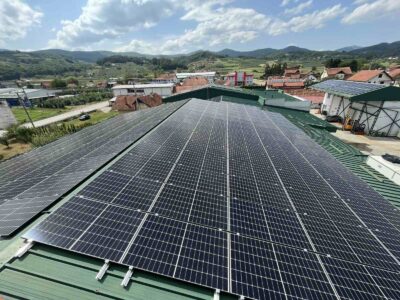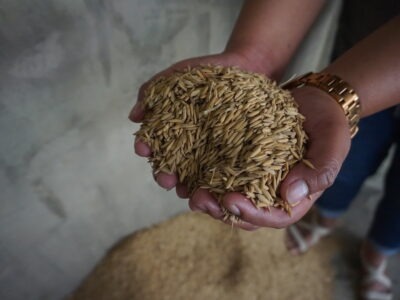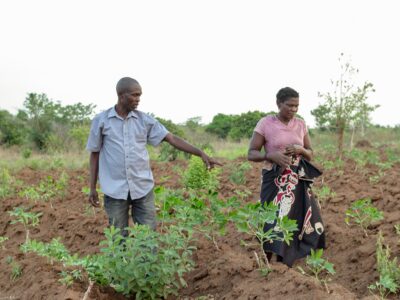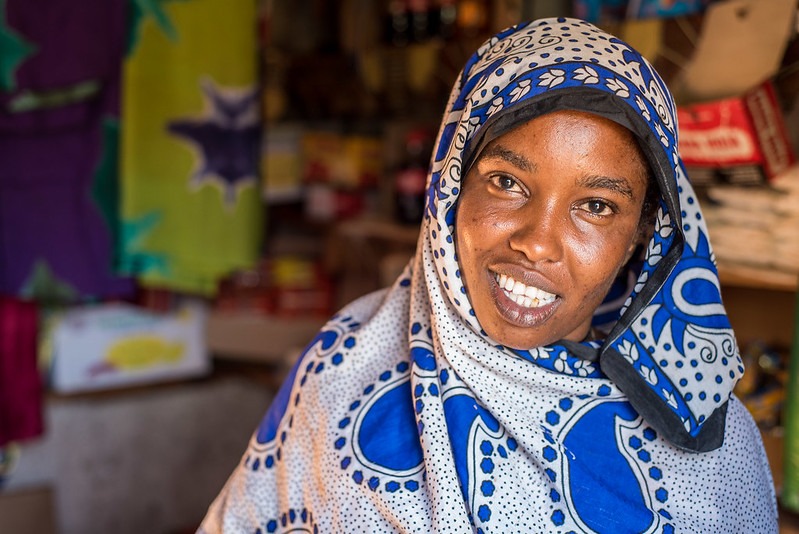
Between Marsabit and Moyale, about 750 kilometers from Nairobi, on the winding road that snakes its way to the border of Kenya and Ethiopia, stands Kaliliwe village. Kaliliwe has been home to 22-year-old Makai Ibrahim for the last seven years, following deadly tribal clashes that forced her family to flee from Odha village to Ethiopia. Afraid to return to Odha after calm was restored, her family moved to Kaliliwe. Even then, life was not easy for Makai. Systemic and cultural barriers hold back many girls like Makai, especially in pastoralist communities.
“After returning from Ethiopia, my parents did not take me back to school, thus I dropped out in grade four. They tasked me with the responsibility of taking care of the household and my seven siblings.”
Makai Ibrahim, project participant
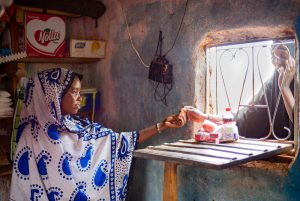
Adolescent girls in Northern Kenya experience early and forced marriages, teen pregnancies, gender-based violence, and female genital mutilation. They also face a disproportionate amount of household labor. A 2016 study by Mercy Corps found that half of women ages 20 to 49 were married before the age of 19, and 20 percent of girls ages 15 to 19 had at least one child. With limited access to education — as parents prefer to send their boys to school — adolescent girls fail to attain the skills that would empower them economically. Many cannot access financing or productive assets.
A Safe Space to Learn
It looked as if Makai’s life was fated to become a statistic after getting married at age 18, but that changed in 2018 when she joined a nine-month Feed the Future-supported “safe space” training. There, girls receive lessons on basic literacy and numeracy, business, and finance as well as menstrual hygiene, reproductive health, and nutrition — all within a safe setting.
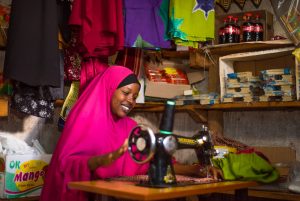
Soon Makai became a mentor to 24 young girls in her group called Hawacho, after the beautiful but hardy worm-cure albizia tree. Together they pooled their savings of KES 100 a day to provide no-interest loans to group members in need. When they raised KES 98,000 (USD 980), they saved it in a bank account. “Recently, my mother was sick, and I was able to get some money from the group savings to take her to hospital and for treatment,” Makai said.
Investing in the Future
The group also learned how to identify income-generating opportunities. After studying their community, they noticed there were no tailoring services, so they decided to open a sewing shop. They invested KES 25,000 (USD 232) in materials and a sewing machine. They also opened a kiosk selling consumables. Each member had a role in overseeing the sewing shop, kiosk or their kitchen garden.
Locust Swarms Are No Match
The group has not been without challenges. “In January, the desert locust invasion completely decimated our kitchen garden just when we were about to do our second harvest,” Makai said. “Also, there is no electricity in our village. As a result, we have to close our shop as early as seven o’clock to ensure that whoever is at the shop gets home safely.”
Despite all this, the future is bright for the group because of the life-changing knowledge and skills that empower them to navigate day-to-day challenges along their transition pathways.
The Feed the Future Kenya Livestock Market Systems Activity is a USAID-funded program implemented by ACDI/VOCA, in coordination with partners Mercy Corps, Smart Regional Consultants, and the BOMA Project. Under the Activity, the Strengthening Community Capacities Project seeks to reduce global hunger, malnutrition, and poverty through inclusive and sustainable agriculture-led growth as well as the improved resilience and nutritional status of the population. Through its Girls Improving Resilience Through Livelihoods (GIRL) Program, which spans Turkana, Marsabit, Isiolo, Wajir, and Garissa counties, 8,577 adolescent girls have completed “safe space” trainings. The program has also disbursed USD 5,987 in grants for small business loans or school fees at secondary or technical institutes. The Activity also works with county governments to advise and craft policies empowering women and girls.

